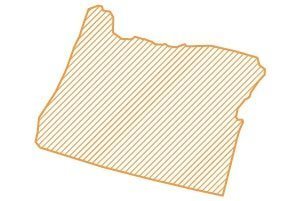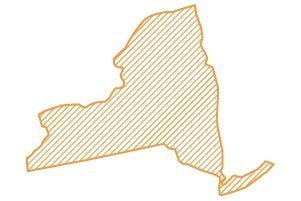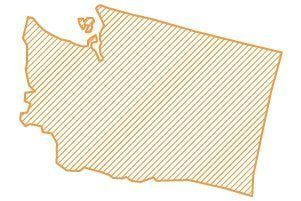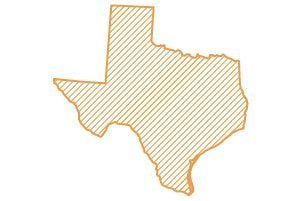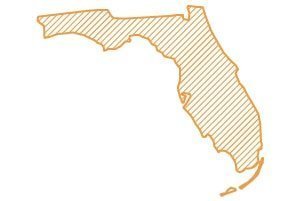Prospective librarians seeking quality education and career prospects in California are in luck. Among America’s fifty states, California boasts some of the best library science programs available, including Master of Library and Information Science programs at University of California at Berkeley, University of California at Los Angeles, and California State University at Long Beach, just to name a few.
California’s numerous library science degree programs offer a variety of benefits, such as American Library Association (ALA) accreditation status, on-campus and virtual class options, and multiple concentrations. California library school graduates exit school with ample employment opportunities ahead of them, as the state of California leads the nation in the sheer number of public library facilities alone, coming in with a whopping 1,127 buildings statewide. Those facilities need skilled librarians to lead them.
Quick Facts
- Number of ALA-accredited MLIS programs offered in California: 3
- Number of fully-online MLIS programs: 2
- Number of program pathways, concentrations, and/or specializations for MLIS programs: 20+
- Number of MLIS programs that require prospective students to have undergraduate backgrounds in library or information science: 0
Average yearly tuition cost for a California-based MLIS program: $18.5k
Library Science Programs in California
There are a variety of reputable library science programs available in the state of California.
Master of Library and Information Science (MLIS) in California
The state of California boasts a variety of Master of Library and Information Science programs. Many of those programs are American Library Association (ALA) accredited, meaning that the college or university’s library science degree program meets a specific set of standards set forth by the American Library Association, which serves as a supporting and governing body for America’s various libraries.
MLIS programs in California with ALA accreditation include
- California State University at Long Beach (100% online program delivery)
- San José State University (100% online program delivery)
- University of California at Berkeley (hybrid program delivery)
- University of California at Los Angeles (on-site program delivery)
- University of Southern California Bovard College (100% online program delivery)
To learn more about these programs’ more specific offerings and details, continue reading.
Online Library Science Programs in California
In an increasingly busy world, graduate students seek online programs more than ever. Fortunately, there a a few 100% online MLIS programs available for prospective librarians in California:
- California State University at Long Beach
- City: Long Beach, California
- Modality: 100% online
- Program: Teacher Librarian Services Credential
- Program Length: 9 classes (or 27 credits/units of study)
- Tuition: In-state tuition is currently $2,049 for 6 units of credit for California residents. Out-of-state costs are the same, but add an additional $420/unit, making the total for non-residents $4,569.
- Program Overview: Students may earn the credential-only, or may pursue the credential along with an MS in Educational Technology & Media Leadership, also offered by the college. The format is completely online with the option to complete field research and experiences in-person.
- Why we like this program:
- The shorter program is ideal for teachers or other working professionals who want to add this credential to their resume.
- A student can begin this program in either the spring or fall semester.
- San José State University
- City: San José, California
- Modality: 100% online
- Programs: Master of Library and Information Science, Master of Archives and Records Administration, Master of Science in Informatics, CA Teacher Librarian Services Credential
- Program Length: 43 credits
- Tuition: In-state tuition is currently $9,146/6-credit semester. Out-of-state students currently pay that rate plus an additional $396/credit, totaling to $11,522.
- Program Overview: San José State University’s offerings are broad – while the core MLIS degree is 43 credit hours, students can choose electives to narrow their focus to suit their professional interests. For example, a student in the MLIS program can choose the archival path if they eventually want to secure a career in archives and records.
- Why we like this program:
- The program maintains a massive and dynamic internship database with over 200 partnering institutions, businesses, and libraries, giving MLIS students a lot of opportunities to gain real-world experiences.
- SJSU’s library science department offers many community-building opportunities despite being fully online, such as webinars, virtual hangouts, student chapters in professional organizations, and more.
Bachelor’s in Library Science in California
Bachelor’s degrees in library science are rare, but there is one program available in California. Often, these degree programs aren’t library science specific, but are focused in information or data science, making them excellent stepping stones to prepare for an eventual MLIS program enrollment.
There is one bachelor’s degree program in California related to library and information science:
This program offers connections to real-world companies, such as Amazon and Google, which highlights its industry alignment.
- San José State University
- City: San José, California
- Modality: 100% online
- Program: BS in Information Science and Data Analytics
- Program Length: Four years
- Tuition: In-state tuition costs $8,410/6 units of study. Out-of-state tuition costs an additional $420 per unit, totaling $10,930.
- Program Overview: The Bachelor of Science in Information Science and Data Analytics degree program at the San José State University School of Information prepares undergraduate students to work with data, technology and people. While this degree program is an excellent stepping stone that can lead to an eventual MLIS, there are plenty of career opportunities this undergraduate degree can bring.
- What we like about this program:
- This bachelor’s degree focuses more on information science and data analytics than a traditional library science bachelor’s program.
Ph.D. and Doctoral programs in Library Science in California
Students who already hold an MLIS are sometimes interested in continuing their education with a Ph.D. in library and information science. Whether it is to gain a deeper understanding of the field, complete research, prepare for higher-level positions, or become eligible to teach at the collegiate level, a Ph.D. in library and information science can give a professional the educational edge they need to advance toward their goals.
If you are considering earning a Ph.D. in library and information science in California, consider these program options:
- University of California at Los Angeles
- City: Los Angeles, California
- Modality: In-person
- Program: Ph.D. of Information Studies
- Program Length: 3-5 years
- Tuition: In-state tuition costs $18,136 annually. Out-of-state tuition costs $33,238 annually.
- Program Overview: This Ph.D. program is described as rigorous with a strong research focus. It is structured in a way to give students a cohort experience with coursework coupled with research apprenticeships and faculty mentoring. Students are also encouraged to present and publish their research findings in academic, professional, and community venues.
- Why we like this program:
- This program maintains a strong community learning focus, offering cohort support and faculty mentorships for students.
- No research topic is required at the onset of the program; students have a chance to explore what they want to develop into an eventual research focus.
This program is led by faculty who are experts in their various information science-related fields.
- University of California at Berkeley
- City: Berkeley, California
- Modality: In-person
- Program: Ph.D. of Information Science
- Program Length: An average of six years
- Tuition: In-state tuition is $10,964 for one semester. Out-of-state tuition is $18,515 per semester. UC Berkeley offers funding opportunities for all Ph.D. candidates, such as fellowships, stipends, and research positions.
- Program Overview: This doctoral program is highly research-oriented. Students are able to choose their specific fields of specialization and complete original research and preparation in that field, eventually culminating in a written dissertation.
- Why we like this program:
- This program emphasizes original research and encourages students to pursue publishing as a part of their studies.
Career and Licensing Requirements for Librarians in California
Like other states, California requires librarians to meet specific requirements to qualify for employment in its various institutions. While public libraries and academic libraries’ requirements aren’t as stringent, there are some specific steps required for K-12 school librarianship.
School Librarian Requirements in California
Potential K-12 school librarians do not need a completed MLIS in order to qualify for these positions. According to the California Commission on Teacher Credentialing, a candidate would need to…
- Have a bachelor’s degree or higher in any subject area.
- Hold a valid teaching license in the state of California.
- Complete a commission-approved Teacher Librarian Services Credential (TLSC)* program, securing the formal recommendation of the California college or university where the program was completed.
*Note: Many California schools offering MLIS programs also offer this TLSC program. Many students opt to complete both concurrently, resulting in a completed MLIS and completed TLSC at the end of the program. While the MLIS isn’t a requirement for California’s K-12 school librarians, it is worth noting that earning an MLIS in addition to the TLSC can open more career pathways.
A professional preparation program in teacher librarian services includes successful completion of supervised field work, or the equivalent, in a program taken outside California of at least 30 graduate semester units, that is comparable to a program accredited by the Committee on Accreditation.
Salary and Job Outlook for Librarians in California
The Bureau of Labor Statistics currently lists the following salary averages and growth projections for librarians in America:
- Average yearly salary: $64,329 (around $30.92 per hour)
- Growth projections: Employment of librarians is expected to grow 2% between 2024 and 2034. While this growth rate is slower than average, around 13,500 openings are projected for each year – this accounts for retirements, career changes, and other opening opportunities.
How do these numbers compare to California’s data?
- Average yearly salary for a California librarian: $70,000 to $100,000, depending on the area of the state the position is serving, making the yearly salary averages higher than the national average
- This range is impacted by a variety of factors, including location, institution type, and local cost of living adjustments
- Growth projections in California: Employment of librarians in California is expected to grow 8% through 2030, placing this field slightly above the state average for other professions.
Scholarships and Financial Aid for Library Science Students in California
A college education isn’t cheap, but luckily, library science students in California have a variety of financial aid and scholarship opportunities available to them.
- Offers Library Science Student Scholarships for students employed at SCELC member libraries pursuing an ALA-accredited MLIS program. Past awards included $1,500–$3,500 each.
- Also provides scholarship for travel, research, etc. through awards such as: Internship Excellence Awards, Professional Development Awards, Conference Travel Awards, Research Incentive Awards
- Offers tuition reimbursement opportunities for public or county law library staff who are working toward completing an MLIS program.
- In 2023, PLSEP reported assisting over 114 students with tuition reimbursement and celebrated 47 MLIS graduates.
- The CLA Scholarship For Black, Indigenous, People of Color Students In Memory Of Edna Yelland: The CLA Scholarship for Black, Indigenous, People of Color (BIPOC) Students in Memory of Edna Yelland encourages and supports students in the attainment of a graduate degree in library or information studies and encourages commitment to the improvement of library services to BIPOC students.
- The Begun Scholarship: This opportunity supports continuing library school students who have demonstrated a commitment to becoming children’s or young adult librarians in a California public library. One scholarship of $3,000 is awarded annually.
- CLA Robert Karatsu Conference Scholarship: This opportunity supports CLA members to attend the annual conference. Priority is given to students, paraprofessionals, and those with employers that cannot support conference attendance fees.
CSLA and its foundation offer several targeted scholarships, including:
- Leadership for Diversity Teacher Librarian Scholarship – $1,500
- Leadership for Diversity Classified Scholarship – $1,000
- Northern Region Jewell Gardiner Memorial Fund – $1,000
- Southern Region Teacher Librarian Scholarship – $2,500
FAQs About Library Science Programs in California
Do you need a master’s degree to become a public service librarian in California?
It depends! Many public libraries prefer their librarians to hold MLIS degrees, but some might make exceptions or have other employment requirements. Prospective applications should check each system’s individual employment requirements to get a better idea of what educational background they will need prior to applying for school.
Do you need a master’s degree to become a K-12 school librarian in California?
No. CSLA reports that school librarians don’t need MLIS degrees to become teacher librarians, but they do need to earn a specific credential (called a Teacher Librarian Service Credential) in order to assume the role.
How long does it take to earn an MLIS degree?
MLIS programs are flexible, as many of their students are balancing full or part time work alongside their studies. The typical MLIS degree requires students to earn 36-48 credits (depending on the school) to graduate. Part time students can expect to take around two and a half to four years to complete a degree, and full time students can expect to take around one and a half to two years to complete a degree.
What jobs are available for MLIS grads in California?
As mentioned earlier in this article, non-library professions in California are looking for librarian-specific skills in their workplaces. This opens more opportunities for MLIS grads to enter a variety of fields. Some jobs for MLIS grads in California include…
- Public librarian
- K-12 school librarian
- Academic librarian
- Special collections librarian
- Technical services librarian
- Archivist
- Media & publishing professional
- Museum or cultural heritage roles
- Corporate librarian
- Information management roles
- Digital assets manager
Next Steps
While library programs and library-related jobs are abundant in California, other states boast robust opportunities for prospective librarians as well. Consider some other opportunities across America before deciding on which program best suits your educational and professional goals.
Pay close attention to accreditation statuses. Many library employers – whether they are public, academic, or K-12 school institutions – prefer to hire candidates with ALA-accredited degrees under their belts. While many schools boast ALA-accreditation status, some others don’t. When comparing degree program options, students should consider whether or not an ALA-accredited degree will benefit them during their future job search. Before committing to any MLIS program, research employers that appeal to you and see if their open job postings reference an ALA-accredited degree as a requirement.


